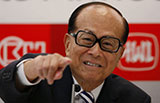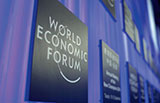Weakened yuan expected to help nation's car exports
By Hao Yan and Yang Cheng (China Daily) Updated: 2015-08-17 11:28Dong said, "Chinese brands have seen a surge in their sales and the new-energy vehicles have become a highlight amid the sluggish sales in recent months."
During the first seven months of this year, 4.67 million Chinese branded passenger vehicles were sold, a rise of 13.58 percent year-on-year.
These sales accounted for 41.17 percent of the total passenger vehicles sold during the period, up 3.69 percentage points.
German, Japanese, South Korean and French brands accounted for 19.65 percent, 15.53 percent, 12 percent and 7.9 percent respectively.
Yin said that Chery's portfolio will be powered by some of its leading models, including Cowin and Kerry, of which the company expects combined sales to hit 100,000 units by the end of this year.
In the new-energy vehicle sector, China produced 95,530 units and sold 89,549 units during the first seven months, a jump of 2.5 and 2.6 times compared with last year.
The number of pure electric vehicles produced and sold stood at 60,294 and 55,180 respectively during the same period, with growth of 2.7 and 3 times compared with last year.
The number of plug-in hybrids produced and sold between January and July stood at 60,294 and 34,369, increasing by 2.2 and 2.1 times.
"The momentum will be on a upward swing in the following months," Dong said. Yin is upbeat in regards to Chery's NEV models, which he expects the company to sell 10,000 of during 2015.
Policy-driven NEV sector
Zhao Xinzhi, director of Nielsen China Auto Vertical, which jointly published a white paper with the China Association of Automobile Manufacturers last week, said Chinese consumers have been long awaiting more incentives in the sector in addition to the 10 issued during the first half of this year.
Zhao said that 53.9 percent of local citizens surveyed for the white paper book were aware of the government subsidies offered for NEV buyers.
He said the sector's growth should be transformed from policy-driven into consumer interest-driven in China.
- 2015 China International Fair for Investment and Trade kicks off in Xiamen
- China's commodity imports robust in Jan-Aug period
- China stocks rebound 2.92%
- 2015 China box office already past 2014 total
- China foreign trade decline widens in August
- Interview: JP Morgan's senior executive bullish on China
- Innovation, development the focus for NZ mayors
- Lives of freelancers

















